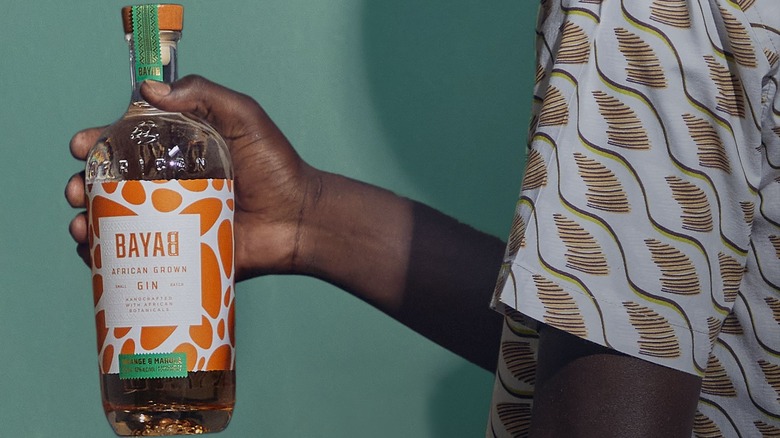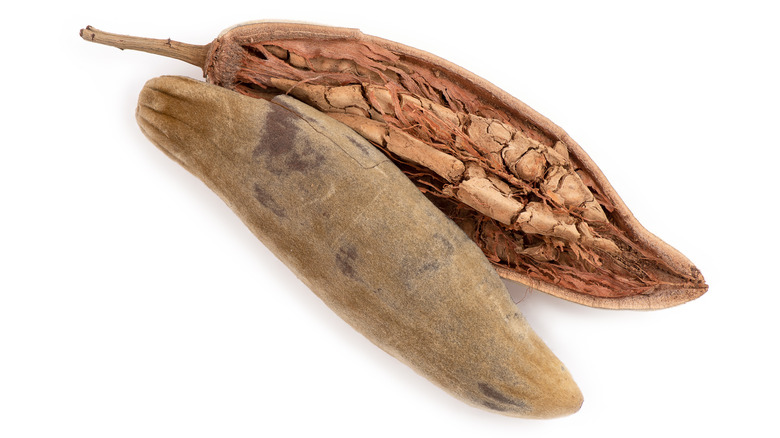The Citrusy Fruit That Makes Bayab's South African Gin Unique
Gin is probably a beverage you associate with buttoned-up Englishmen sharing a tipple at a social club or bearded Brooklynites recreating romanticized Prohibition-era moonshine in small-batch distilleries. But the highly versatile spirit is actually made all over the world, and recognizably varied depending on its origin. At its simplest, it is a grain alcohol (often made from barley or wheat), flavored with the piney berries from the juniper plant. But most distillers add a variety of botanicals from their own region, such as fruit, bark, roots, or leaves, to lend their gin a flavor that can't be easily produced elsewhere.
The newest gin producers bringing their own special spin to the market are a handful of distillers making the spirit in South Africa. Brands like Procera, Atian, Geometric Gin, Unit 43, and Inverroche are building local, sustainable businesses that support regional economies while drawing attention to the African continent through the export of their spirits.
One of the frontrunners of this movement is Bayab, a gin brand from Spearhead, an African spirits group created by co-founders Chris Frederick and Damola Timeyin. Since winning gold at the 2022 San Francisco Wine and Spirits competition, Bayab has made an impact on the liquor industry with gins that carry complex flavors but are largely distinguished by one plant in particular.
The botanicals in South African gins
According to VinePair, the uniqueness of South African gins owes a lot to the botanicals sourced from the Cape Floral Kingdom — a small, isolated area globally recognized for its distinct and diverse plant life. Home to a collection of native evergreen shrub species known as fynbos, this region provides distillers with an array of botanicals that can't be found anywhere else in the world, giving them an advantage and a recognizable terroir when it comes to making gin (per The Tasting Alliance). Common ingredients used include rooibos, licorice, buchu, kapokbos, African wormwood, confetti bush, and salvia.
But the most noteworthy botanical in Bayab's gins is actually found throughout Africa – the baobab, known as the "tree of life," thanks to its role in many Indigenous remedies and the hundreds of known uses for its bark and fruit. The enormous, bulbous tree produces large, oblong fruits that taste sweet and citrusy — almost like sherbet. While Bayab's gins are marked with the signature flavor of juniper that all gins carry, it's the citric flavor from the baobab fruit that sets the brand apart and comes to the forefront of the palate.
Because of its innovative botanicals, Bayab's stunning South African gins should be enjoyed in simple preparations where their flavors will shine through, such as a gin and tonic or martini. Save the Negroni for your parents' old bottle of Gordon's.

